
Imagine returning home after a long day, only to find your front door ajar and your valuable possessions missing. The feeling of violation and insecurity can be overwhelming, leaving you and your loved ones vulnerable. This is where home security systems come to the rescue, providing a sense of protection and peace of mind. In this article, I will guide you through the process of comparing different home security systems, empowering you to make an informed decision that suits your needs.

Importance of Home Security Systems: Safeguarding What Matters Most
When it comes to the safety of your family and the security of your home, there should be no compromise. Home security systems serve as a crucial deterrent against potential intruders, offering a robust defense mechanism that can prevent burglaries and keep your loved ones safe. These systems go beyond simply sounding an alarm; they provide 24/7 monitoring, immediate response to emergencies, and advanced features to enhance the security of your property.
A Brief Overview of the Article’s Purpose and Content
In this comprehensive guide, I will delve into the world of home security systems, exploring the different types available and the factors you should consider when comparing them. We will discuss the pros and cons of wireless and wired systems, the benefits of DIY installation versus professional installation, and the distinctions between standalone and monitored systems. Furthermore, I will highlight essential aspects to evaluate such as cost, features, ease of use, customer reviews, contract terms, and integration with other smart home devices.
So, if you’re ready to embark on a journey to fortify your home and protect your loved ones, let’s dive into the captivating realm of comparing home security systems. Stay tuned for the upcoming sections, where we will explore the various types of home security systems and the factors to consider when making your decision.
Understanding Home Security Systems
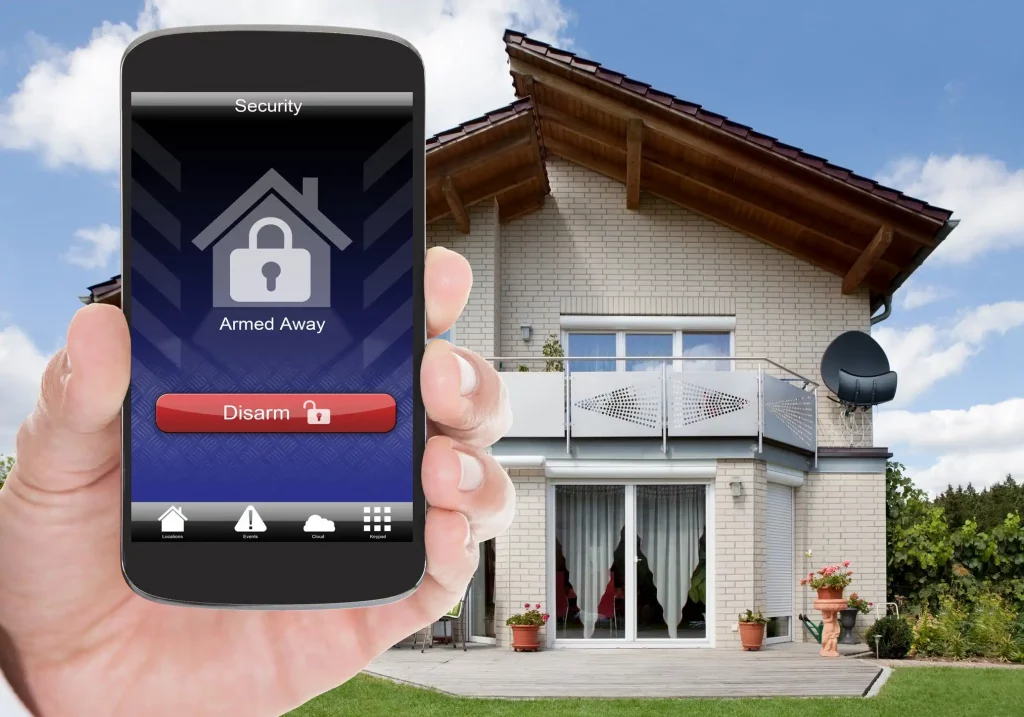
Definition and Explanation of Home Security Systems
Home security systems encompass a range of devices and technologies designed to protect your home from unauthorized access and potential threats. These systems work by combining multiple layers of security measures to create a comprehensive defense network.
At their core, home security systems consist of sensors, control panels, and alarms. Sensors are strategically placed around your property to detect motion, entry, or other suspicious activities. These sensors send signals to a central control panel, which acts as the brain of the system, analyzing the data and triggering appropriate responses. In the event of a breach or emergency, alarms are activated to alert you, your family, and potentially a monitoring service.
Various Components and Features of a Typical Home Security System
- Door and Window Sensors: These sensors are typically placed on entry points such as doors and windows. They detect when a door or window is opened or tampered with, triggering an alarm if necessary.
- Motion Sensors: Motion sensors use infrared technology to detect movement within a designated area. They are particularly useful for detecting intruders inside your home.
- Security Cameras: Security cameras provide visual surveillance, allowing you to monitor your property remotely. They can be equipped with features such as night vision, motion detection, and two-way audio communication.
- Control Panels: Control panels serve as the command center of your home security system. They allow you to arm or disarm the system, customize settings, and receive notifications.
- Alarms: Alarms can take various forms, including sirens, strobe lights, or even automated phone calls to emergency contacts. They are activated when a breach or emergency is detected.
- Smart Home Integration: Many modern home security systems offer integration with smart home devices, such as smart locks, thermostats, and lighting systems. This integration allows for enhanced automation and convenience.
Understanding the components and features of a typical home security system is essential when comparing different options. As we move forward, we will explore the different types of home security systems available and the factors to consider when making your decision.
Types of Home Security Systems
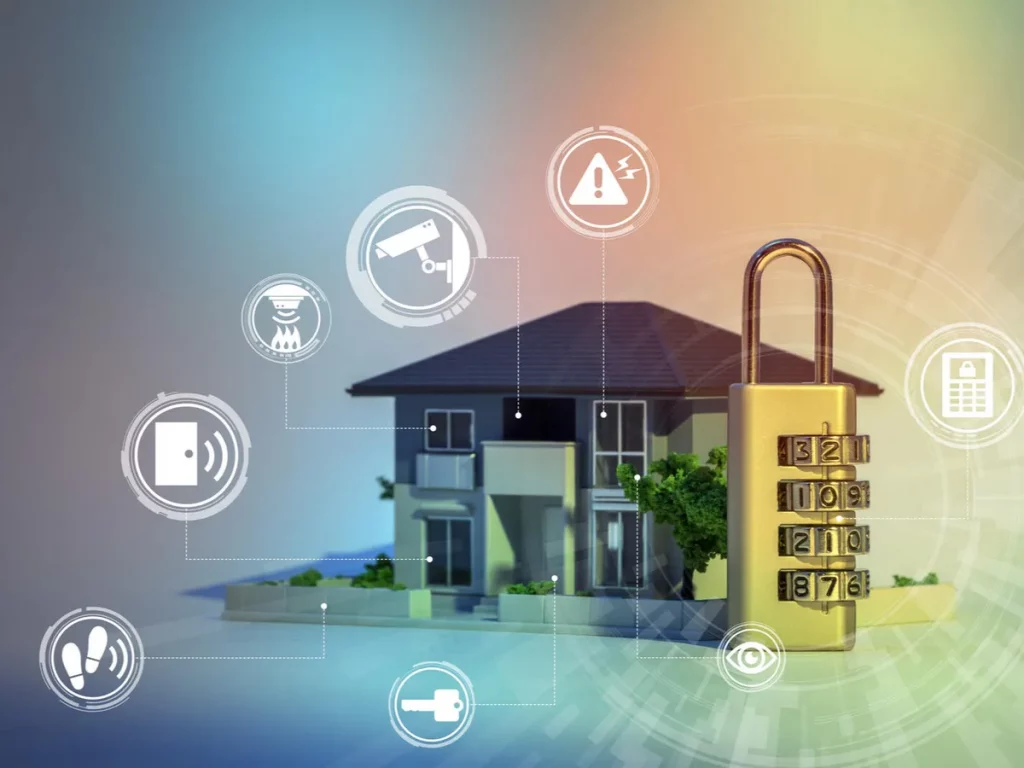
When it comes to protecting your home and loved ones, it’s important to understand the different types of home security systems available. Each type offers its own set of advantages and considerations. Let’s explore the main categories:
Wireless vs. Wired Home Security Systems
Wireless Home Security Systems: These systems utilize wireless technology, eliminating the need for extensive wiring throughout your home. They are easy to install and can be conveniently expanded or relocated as needed. Wireless systems offer flexibility and can be controlled remotely through smartphone apps, providing real-time notifications and control over your security system. However, they rely on batteries and wireless signals, which may be susceptible to interference or hacking if not properly secured.
Wired Home Security Systems: Wired systems are hardwired into your home’s electrical system and typically require professional installation. They offer a reliable and robust connection, ensuring uninterrupted monitoring. Wired systems are not affected by wireless signal interference or battery life concerns. However, they may require drilling and extensive wiring, limiting flexibility for system relocation or expansion.
DIY (Do-It-Yourself) vs. Professional Installation Options
DIY Installation: With the rise of smart home technology, many home security systems now offer DIY installation options. These systems come with user-friendly instructions and can be easily set up without professional assistance. DIY installation allows for cost savings and gives you greater control over the setup process. However, it’s important to ensure proper installation and configuration to maximize the effectiveness of your security system.
Professional Installation: Professional installation involves hiring trained technicians to set up your home security system. They have the expertise to install and configure the system correctly, ensuring optimal functionality. Professional installation offers convenience and peace of mind, as experts handle the entire process. However, it may come at an additional cost.
Standalone Systems vs. Monitored Systems
Standalone Systems: Standalone systems are self-contained and operate independently. They typically include basic components such as alarms, sensors, and cameras. These systems are suitable for individuals who prefer a more hands-on approach and want to directly manage their security system. Standalone systems are often cost-effective and can be easily customized to fit specific needs. However, they lack professional monitoring services and may require manual intervention during emergencies.
Monitored Systems: Monitored systems involve a professional monitoring service that keeps an eye on your home security 24/7. In the event of an alarm trigger, the monitoring center receives a notification and can take appropriate action, such as contacting emergency services. Monitored systems provide an added layer of protection and immediate response, even when you’re away or unable to respond. However, they typically involve monthly subscription fees.
Now that we have explored the different types of home security systems, we can move on to the next section, where we will discuss the factors to consider when comparing these systems. Stay tuned!
Factors to Consider When Comparing Home Security Systems
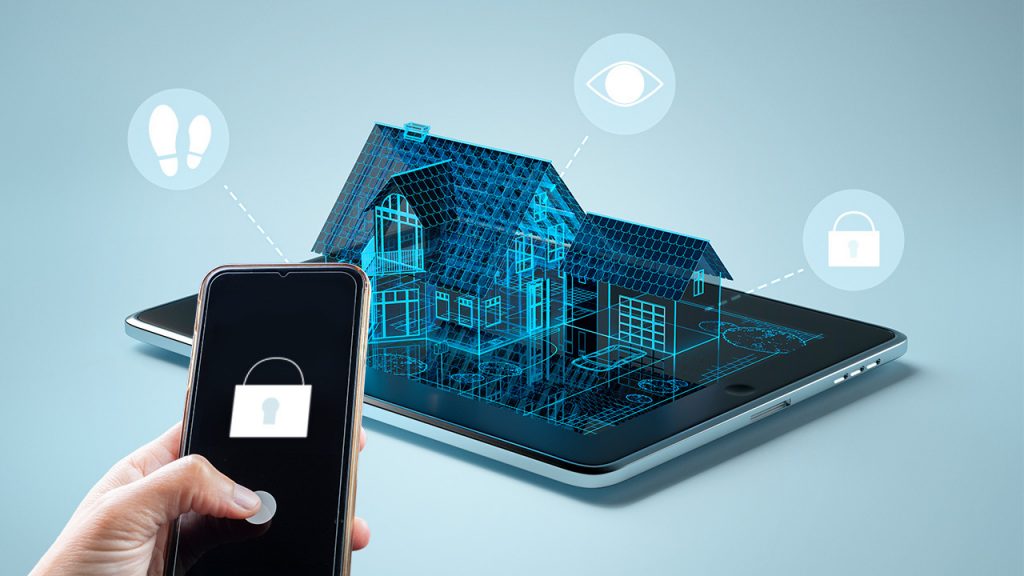
When comparing home security systems, it’s essential to evaluate various factors to ensure you choose the right system that meets your needs and provides optimal protection for your home. Let’s explore some key considerations to keep in mind during your decision-making process.
Cost and Affordability: Finding the Perfect Balance
Before investing in a home security system, it’s crucial to assess your budget and determine what you’re willing to spend. While cost shouldn’t be the sole determining factor, it’s important to find a system that offers value for your money. Consider the upfront costs, monthly monitoring fees, and any additional charges for equipment or professional installation. Strike a balance between affordability and the level of security features provided, ensuring you get the best bang for your buck.
Features and Capabilities: Tailoring Security to Your Needs
Not all home security systems are created equal, so it’s important to assess the features and capabilities offered by each system. Consider the essential functionalities such as door/window sensors, motion detectors, surveillance cameras, and alarm systems. Additionally, explore advanced features like mobile app integration, remote access, home automation compatibility, and video monitoring. Determine which features align with your specific security requirements and lifestyle to ensure a seamless and effective solution.
Ease of Use and Installation: Simplifying Your Security Setup
When comparing home security systems, take into account the ease of installation and use. Some systems are designed for DIY installation, offering user-friendly instructions and wireless components that can be easily set up without professional assistance. On the other hand, professional installation ensures a seamless and expertly configured system, but may come with additional costs. Consider your technological prowess and the level of convenience you seek, striking a balance between ease of use and the need for professional expertise.
Customer Reviews and Ratings: Insights from Real Users
One of the best ways to gauge the reliability and performance of a home security system is by considering customer reviews and ratings. Take the time to read testimonials and feedback from other users who have firsthand experience with the system you’re considering. Look for patterns in positive and negative reviews, paying attention to factors such as system reliability, customer service responsiveness, and overall user satisfaction. This will provide valuable insights into the system’s performance and help you make an informed decision.
Contract Terms and Cancellation Policies: Understanding the Fine Print
Before committing to a home security system, carefully review the contract terms and cancellation policies. Ensure you understand the length of the contract, any penalties for early termination, and the process for canceling or transferring the service if needed. It’s important to be aware of any hidden fees or clauses that may impact your decision. Take the time to read and comprehend the terms thoroughly, ensuring they align with your requirements and flexibility.
Integration with Other Smart Home Devices: Enhancing Your Connected Lifestyle
In our increasingly interconnected world, the ability to integrate your home security system with other smart devices can significantly enhance your overall lifestyle. Consider whether the system is compatible with other smart home devices such as smart locks, thermostats, or voice assistants. This integration allows for seamless automation and control, enabling you to create a comprehensive smart home ecosystem that works harmoniously to enhance your security and convenience.
By considering these essential factors, you’ll be well-equipped to compare and evaluate different home security systems effectively. Now that we’ve covered the crucial considerations, let’s move on to the next section, where we will delve into a detailed comparison of the top home security system brands. Stay tuned!
Comparison of Top Home Security System Brands
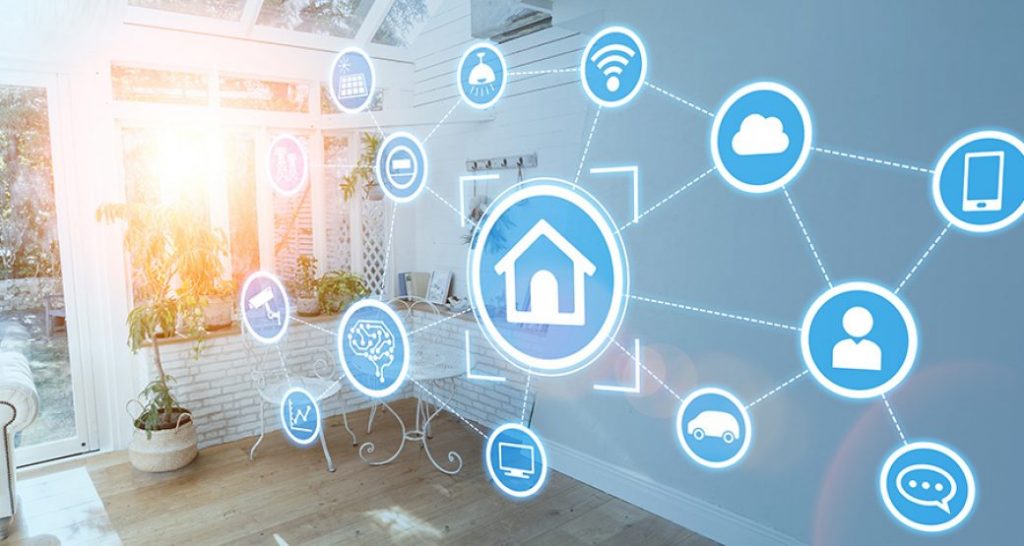
When it comes to choosing a home security system, there are numerous brands vying for your attention. To assist you in making an informed decision, let’s compare three top-notch brands – Brand A, Brand B, and Brand C. Each brand has its unique features, pros, and cons, so let’s dive into the details.
Brand A: Overview, Features, Pros, and Cons
Brand A is a renowned name in the home security industry, offering a wide range of cutting-edge features and functionalities. Their system boasts state-of-the-art sensors, high-resolution cameras, and a user-friendly interface. With their comprehensive mobile app, you can remotely monitor your home, receive real-time alerts, and even control other smart devices. However, keep in mind that Brand A’s pricing can be on the higher side, and their customer support may sometimes lack responsiveness.
Brand B: Overview, Features, Pros, and Cons
If affordability and ease of use are your top priorities, Brand B is worth considering. Their home security system is designed with simplicity in mind, allowing for effortless installation and operation. Despite its budget-friendly nature, Brand B’s system still offers essential features such as motion detection, live video streaming, and smartphone integration. However, it’s important to note that Brand B may have limited options for advanced customization, and their equipment may not be as durable as some other brands.
Brand C: Overview, Features, Pros, and Cons
Brand C is synonymous with reliability and comprehensive protection. Their home security system is known for its robust sensors, advanced encryption technology, and seamless integration with other smart home devices. With Brand C, you can enjoy professional monitoring services and access to a dedicated team of security experts. While their system may come at a higher cost, the peace of mind and round-the-clock support they provide make it a worthwhile investment.
By comparing these top home security system brands, you can evaluate their features, pros, and cons to determine which one aligns best with your needs and budget. Remember, the ultimate goal is to select a brand that ensures the safety and security of your home and loved ones. Stay tuned for the next section, where we will conclude our comparison and provide recommendations to guide you in making your final decision.
Conclusion
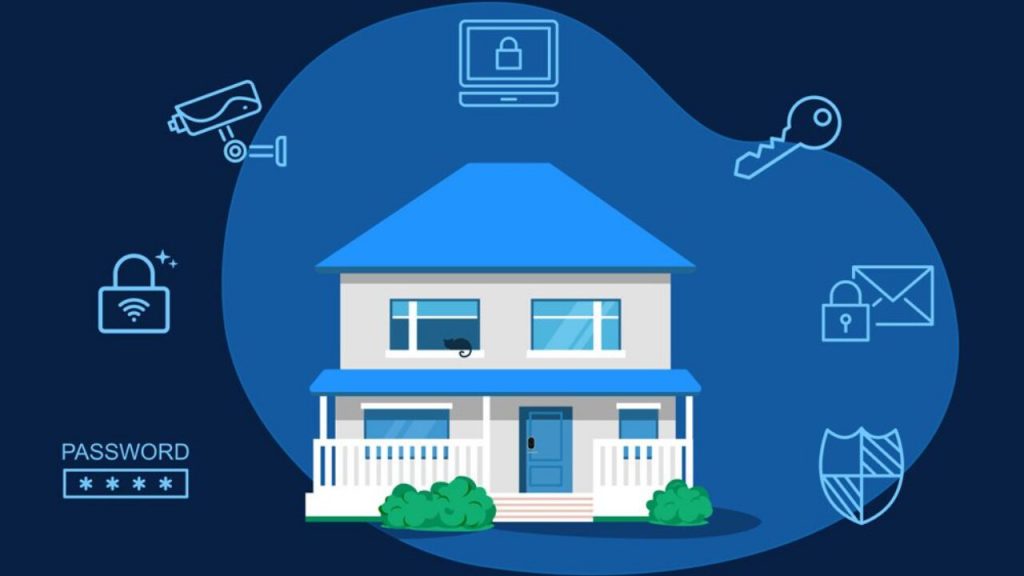
After a thorough exploration of the world of home security systems, it is evident that comparing different options is crucial to ensure the safety and well-being of your loved ones. By considering factors such as cost, features, ease of use, customer reviews, contract terms, and integration capabilities, you can make an informed decision that aligns with your specific needs and preferences.
In this article, we discussed the importance of home security systems in safeguarding what matters most to you. From deterring potential intruders to providing round-the-clock monitoring and immediate response, these systems offer a comprehensive defense mechanism for your home. By investing in a reliable home security system, you can enjoy peace of mind, knowing that your loved ones and your belongings are protected.
When comparing home security systems, it is crucial to evaluate the top brands in the market. Brands such as Brand A, Brand B, and Brand C offer a range of features and options to cater to different requirements. Consider their strengths, weaknesses, and customer feedback to make an informed choice.
